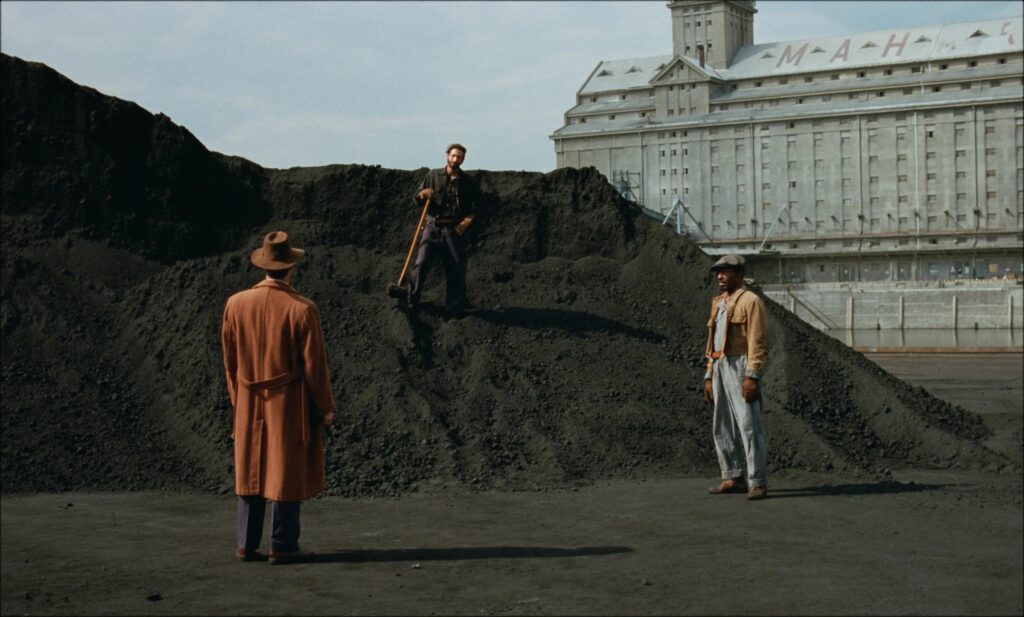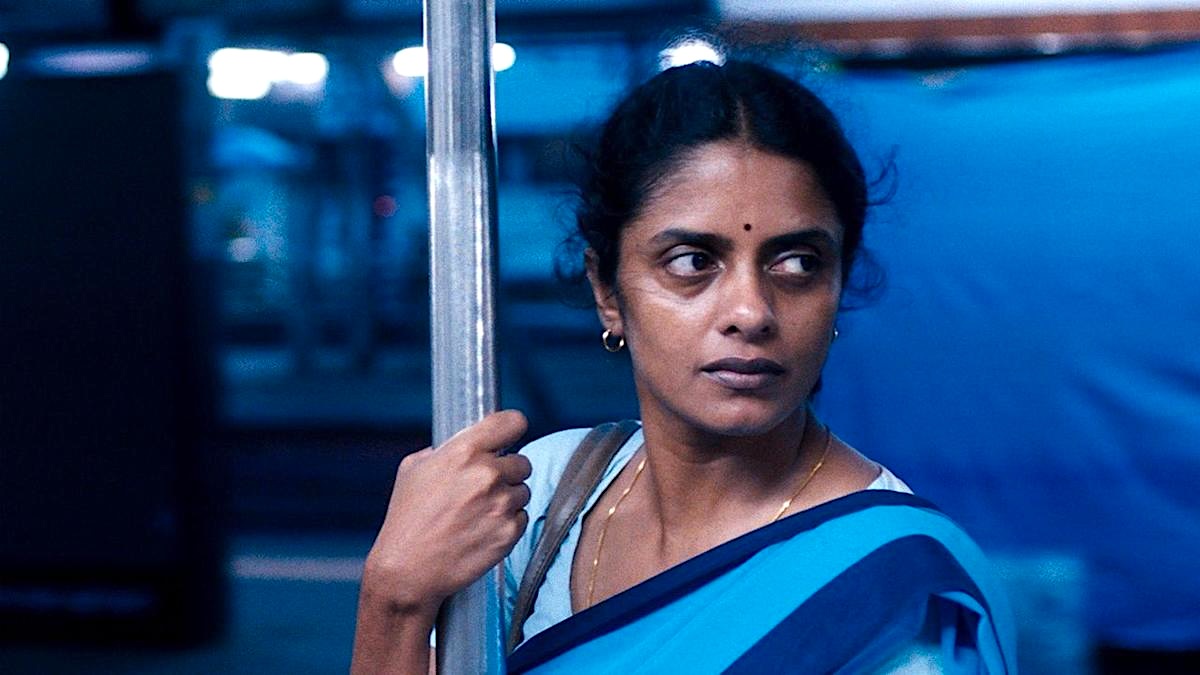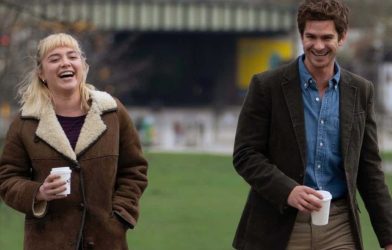The New York Film Festival has been an enduring part of New York’s rich cultural and historical landscape since 1963. The 62nd edition ran from September 27-October 14, taking place at Lincoln Center venues (Alice Tully Hall, Elinor Bunin Munroe Film Center, and Walter Reade Theater), as well as local arthouse theaters in all five boroughs.
Here is a spoiler-free Top 10 Ficks’ Picks from this year’s NYFF62 festival, which showcased 71 features and 29 shorts.
Payal Kapadia’s All We Imagine as Light (France/India/Netherlands/Luxembourg)
A winner of this year’s Cannes Film Festival Grand Prize (2nd place), this film deserves every one of its accolades as it explores the lives of two working class Malayali nurses living in Mumbai. Writer-director Payal Kapadia’s exquisite pacing combines Dardenne-like immediacy with a romantic warmth that has been greatly lacking in contemporary films. As the two embark on a road trip to a beach town, a kind of mystical immersion occurs to the characters (as well as the audience), leading to an absolutely dazzling conclusion.
Similar to Kapadia’s previous gem, A Night of Knowing Nothing (which won the Golden Eye award for best documentary film at the 2021 Cannes Film Festival), this 118-minute film its an unforgettable experience. In Malayalam and Hindi with English subtitles. Sideshow/Janus Films release date is November 15 in New York and Los Angeles, with a wider release to follow.
Matthew Rankin’s Universal Language (Canada)
In easily one of the funniest films of recent years, Manitoban filmmaker Matthew Rankin has constructed a surreal, autobiographical romp that feels like Abbas Kiarostami’s Where is the House (1987), Taika Waititi’s Boy (2010) and Jane Campion’s Passionless Moments (1985) wrapped into one. The plot interweaves between a couple kids who find some money frozen in the winter ice, a man who quits his job with the Québec government, and a group of increasingly-confused tourists wandering through monuments and historic sites of Winnipeg.
I found myself oddly connected to each scenario, not ever needing to know what the hell was going on. Curious viewers who stick with this uniquely bizarre 89-minute journey may find themselves with tears in their eyes at the film’s poignant conclusion. In Farsi and French with English subtitles. Oscilloscope Laboratories will be releasing the film in the US in early 2025.
Sean Baker’s Anora (US)
Sean Baker’s latest screwball masterpiece is one of the most memorable experiences of 2024. Mikey Madison (who first wowed audiences in 2019 with her “fiery” performance as one of Charles Manson’s disciples in Quentin Tarantino’s Once Upon a Time in Hollywood) establishes herself as a major star by absolutely owning the title character, an exotic dancer from Brighton Beach that is “thrust into the lap of luxury when she’s whisked away on a whirlwind romance with a wealthy young customer.”
Combining Peter Bogdanovich’s They All Laughed (1981), John Cassavetes’s Minnie & Moskovitz (1971) and Paul Thomas Anderson’s Licorice Pizza (2021), Baker’s empathetic tendencies continue to showcase neglected individuals—see Tangerine (2015), The Florida Project (2017) and Red Rocket (2021). With Anora, admirers of Baker’s previous work will delight in the auteur’s distinctive style on full display (which runs 138-minutes!) he was given the Palme d’Or (1st place) at this year’s Cannes Film Festival (the first American film to do so since Terrence Malick’s The Tree of Life in 2011.) NEON’s theatrical wide release date is October 18.
Déa Kulumbegashvili’s April (France/Georgia/Italy)
Those of you looking for one of the most jaw-dropping cinematic experiences of 2024, look no further. Georgian filmmaker Déa Kulumbegashvili burst onto my radar in 2020 with her stunning debut feature Beginning, which followed “the wife of a Jehovah’s Witness leader who becomes disillusioned with her life after its place of worship is firebombed by violent extremists.” With her follow-up, April, she follows an obstetrician (played by phenomenal newcomer Ia Sukhitashvili) who is confronted with the daily dilemma of whether to help local women in her small town with illegal abortion services.
Channeling Michael Haneke’s uncomfortably long-takes and often resulting in excruciating imagery, Writer-director Kulumbegashvili has quickly become one of cinema’s most disruptive filmmakers. In Georgian with English subtitles and a running time of 134-minutes, the film won the Special Jury Prize at the 81st Venice International Film Festival. The film is still seeking American distribution though it does have a theatrical release date in France on April 16, 2025.
Leos Carax’s It’s Not Me (France)
This loving tribute to later-era Jean-Luc Godard doesn’t just mimic France’s New Wave “enfant terrible”, it manages to fill a much-needed cinematic gap. While director Leos Carax has always felt like a kindred spirit to Harmony Korine, this visionary trouble maker uses his own film catalog of Boy Meets Girl (1984), Les Amants du Pont-Neuf (1991), Pola X (1999), Holy Motors (2012) and Annette (2021) as faithful fodder, to deconstruct the state of cinema today (complete with Carax even narrating in a gruff Godardian voice.) With a running time of 41-minutes, one could argue that this is the breeziest movie of 2024. In French with English subtitles the film is still seeking American distribution.
Hong Sang-soo By the Stream (South Korea)
Hong Sang-soo has procured two more mini-masterpieces this year, bringing the prolific South Korean filmmaker to a total of nine films in four years. The first being By the Stream, which follows an infamous theater director who is asked to quickly fill in for a university instructor, who was fired for being unprofessional. Hong’s quintessential satirical humor and experimental editing is on full display here as he explores the modern era’s complexities in regards to inappropriateness.
Hong’s favorite actor Kim Min-hee (who has starred in his last 13 films) gives another subdued yet extraordinary turn as the director’s estranged niece. Hong still finds inspiration in French impressionist Paul Cézanne’s paintings for many of the quiet moments while also building to a truly earned, emotionally therapeutic climax. Don’t be intimidated with the immense output of Hong. This 111-minute excursion is the perfect entry point to dive into one of the most consistently entertaining contemporary art-house filmmakers.
Hong Sang-soo A Traveler’s Needs (France/South Korea)
The second Hong Sang-soo film at NYFF this year gives legendary French actor Isabelle Huppert her most memorable performance since her Oscar nominated lead role in Paul Verhoeven’s Elle (2016). Here she embodies “a nomadic Frenchwoman named Iris, who drifts into the lives of a disconnected group of people in a Seoul suburb.” As soon as the film ended, I wanted to watch two or three more entries of the further adventures of Iris the Nomad.
Also starring activist and actor Kwon Hae-hyo (who also stars in this year’s By the Stream), the film’s highlighting of language barriers between characters is reminiscent of my personal favorite of Hong’s Hill of Freedom (2013), and adds an extra layer of gentleness to the immensely uncomfortable situations. Winner of the Silver Bear Grand Jury Prize at this year’s 74th Berlin International Film Festival, this 90-minute story is one of the filmmaker’s best and most accessible. The film is still seeking American distribution.
Athina Rachel Tsangari’s Harvest (UK/US/Germany/France)
My favorite film at this year’s NYFF62 was Greek filmmaker Athina Rachel Tsangari’s latest tour de force that “takes place in a remote village in the Middle Ages marked by superstition and the scapegoating of outsiders.” Lead actor and musician extraordinaire Caleb Landry Jones was so completely committed to his role as the “village idiot” that he stayed in-character throughout the entire production, even while attending the Venice Film Festival to promote Luc Besson’s incredibly underrated Dogman (2023). Jones vibrates with the insatiability of Klaus Kinski, throughout the 131-minute running time, sparking direct comparisons to the late-actor’s performance in Werner Herzog’s transcendental masterpiece Aguirre, the Wrath of God (1972).
Writer-director Tsangari started her career as a producer for Yorgos Lanthimos’ earliest features: Kinetta(2005), Dogtooth (2009), and Alps (2011) as well as co-producing Richard Linklater’s Before Midnight (which was shot in Greece and also cast her as one of the co-stars.) More recently, she has directed her own ominous cinematic gems: Attenberg (2010), Chevalier (2015) and now Harvest (2024). With a melancholy fondness for the processes of shearing goats and cutting wheat, combined with a casual narration manifesting the thoughts of the main character, this breathtaking revisionist Western brought to mind Terrence Malick’s Days of Heaven (1978) and Jane Campion’s The Piano (1993).
Perhaps it was the spectral camerawork by one of independent cinema’s most thoughtful cinematographers, Sean Price Williams (The Sweet East) who filmed the medieval Scottish countryside entirely with natural light. In French and an extremely thick accented Scottish English, make sure to seek out a screening where English subtitles are added. The film is still seeking American distribution.

Brady Corbet’s The Brutalist (US)
In easily one of the most engrossing movies of 2024, Adrien Brody gives yet another career-defining performance as a visionary Hungarian architect who emigrates to America. Brady Corbet’s incredibly nuanced 215-minute epic (complete with an overture and intermission), painstakingly follows the World War II survivor as he arrives in America and the 30 years after as he attempts to rebuild his life, his craft, and his marriage to his wife, hauntingly performed by Felicity Jones. Jim Jarmusch favorite Isaach De Bankolé is subtly heartbreaking as the architect’s right hand man while Guy Pearce downright deserves an Oscar for his hilariously profound performance as an upper-class philistine who is obsessed with understanding the artist’s vision.
Matching the stylistic heights and historical relevance as Christopher Nolan’s Oppenheimer (2023), director Brady Corbet broke into the industry as a serious actor working with even more serious filmmakers: Michael Haneke’s US version of Funny Games (2007), Lars Von Trier’s Melancholia (2011) and Olivier Assayas’ Clouds of Sils Maria (2014). Corbet and co-screenwriter Mona Fastvold, spoke at length in the post-film Q&A about their interest in the Bauhaus artistic movement, which for Corbet started at a very young age. They also shared that The Brutalist is the first American movie since Marlon Brando’s One-Eyed Jacks (1961) to use the VistaVision process and cameras.
This involved shooting sideways on 35mm film stock, and then rotated to be scanned at a resolution equivalent to 70mm. Cinematographer Lol Crawley, musician Daniel Blumberg, and production designer Judy Becker wera all on hand as well to emphasize that this movie needs to be experienced in the largest and loudest movie theater possible. Keep your eyes glued for both 70mm and 35mm screenings upon its release. In English, Hungarian, Hebrew, Yiddish, and Italian with English subtitles, A24 will release the film theatrically on December 20, 2024.
Julia Loktev’s My Undesirable Friends: Part I—Last Air in Moscow (US)
Perhaps NYFF62’s most exciting entry was Julia Loktev’s world premiere of her verité documentary that follows her return to Moscow in 2021 —just months, as it turned out, before the country’s invasion of Ukraine. This astonishing 324-minute document, shot on an iPhone-10, begins with her meeting up with an incredible group of “independent media journalists in Putin’s Russia” and slowly builds like a scripted thriller, in real time.
As the country instantly spirals out of control, Loktev bravely follows her even braver, chain-vaping subjects as they attempt to continue reporting and follow all of the Russian government’s new guidelines. Shades of Barbara Kopple’s Harlan County U.S.A. (1976) along with Radu Jude’s Do Not Expect Too Much from the End of the World (2023) emerge as Loktev organically shifts gears with each new obstacle. As one of the journalists argues, “Important stories don’t tell themselves.” This unfathomable achievement is well worth the five hour and twenty-four-minute journey in five chapters, culminating in one of the most breath-taking conclusions imaginable. In Russian with English subtitles, the film is still seeking American distribution.
Jesse Hawthorne Ficks is the film history coordinator at the Academy of Art University in San Francisco, and is part of the San Francisco Bay Area Film Critics Circle. He curates and hosts “MOViES FOR MANiACS,” a film series celebrating underrated and overlooked cinema, in a neo-sincere manner.









